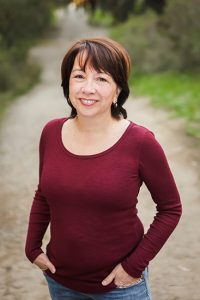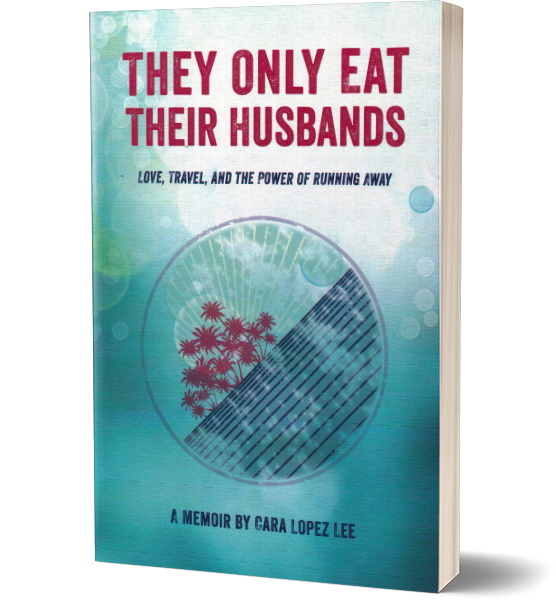I recently answered a question on the Soul Pancake blog that hit at the heart of a subject I ponder often. The question was, “What question do you hate the most?”

“What are you?” I’ve answered this question a lot throughout my life.
In part, my answer was: “What are you?” I both love and hate this question. It often depends on the tone and the context. I have an ethnically-mixed background, and I’ve answered this question a lot throughout my life…
As I answered the question, it struck me that my multiracial status is part of the reason I like to travel. Often I find myself chasing my tale around the world, gathering up bits of my ancestral past. It also struck me that my immigrant ancestors, too, were travelers. With that, I realized that my thoughts on the question “What are you?” might interest fellow wanderers, as we tend to be people who appreciate the unique and eclectic. So I’d like to share with you something else I’ve written on the subject, in a brief excerpt from my adventure memoir, They Only Eat Their Husbands: A Memoir of Alaskan Love, World Travel, and the Power of Running Away…


Often I find myself chasing my tale around the world, gathering up bits of my ancestral past. (Top: Bucerias, Mexico. Bottom: Toishan, China)
EXCERPT FROM
THEY ONLY EAT THEIR HUSBANDS
Ever since I arrived in China, I’ve mourned my lost 18 inches of personal space. But it wasn’t until I reached this rural village, that the pressure of China’s overpopulation felt physically dangerous. Bodies continued pouring into the market, until I was wedged so tightly into a jostling line that the possibility of being trampled became quite real. It was frightening, but energizing. Being squashed in a crowd made me feel very Chinese – though the stares did not.
You’d think I’d be used to people staring at me; they’ve been doing it all my life. I both hate it and love it when people stare at my face and ask, “What are you?” Part of me wants to scream, “I’m an American!” or “I’m a human! What are you?” But another part of me loves being the melting pot personified, and watching their faces change as I share my story.
I’m not aware that any of my father’s Mexican ancestors came to the U.S. by wading or swimming across the Rio Grande, just as none of his Chinese ancestors ever worked on a railroad. My Chinese great-grandfather was a restaurant owner in El Paso, where Mexicans have lived since long before the borders were drawn. My great-grandmother was Mexican, but I believe she and her family simply walked across the bridge from Juarez to El Paso.
On my mother’s side, one of my Irish ancestors was a hillbilly: that great-grandmother was a poor girl from Appalachia. But she was lucky enough to be born with a pretty face. So when she was a teenager, she put on her best dress, came down from the mountains, went to the city, and caught herself a man. Then there were my English ancestors who lived in New England before the Revolutionary War, my Swiss ancestors who moved to the Midwest, my French and Cherokee ancestors — I’m not sure I buy the bit about being descended from a chief’s daughter, although that story has been passed down in my mother’s family for years.
According to another old family story, whispered for generations, one of our New England ancestors married a half-African woman. That makes me something like 1/2048th African, completing the American mosaic, the torn bits and pieces that make up me.
Some people do recognize one of those torn pieces or another, and it seems that some don’t like what they see. One tanned summer day when I was 12, I was riding my bike through the white suburban neighborhood where I lived with my grandparents, when a voice startled me from my daydreams. A little girl of about eight hollered, “Get out of my neighborhood, you dirty Mexican!”
Ever the optimist, I duck-walked over to her on my purple Schwinn with the banana seat, to explain why it was wrong to call people things like that. I was sure that when she saw how friendly I was she would recognize her error and apologize. The pain didn’t hit me until I saw the truth in that little girl’s narrowed eyes, followed by her turned back and stomping feet: my friendly explanation only made her hate me more. I slowly pedaled away, thinking, “This can’t be how most people are. This can’t be how my life is going to be.”
I was right. Sure, a few store clerks have ignored me in favor of paler customers, and a few people have asked me questions like, “With a name like Lopez, why don’t you speak better Spanish?” — I wanted to ask that guy, “With a name like Mc-whatever, why don’t you speak Gaelic?” Still, it’s not how most people treat me. It’s not how most of my life is.
Many men find my exotic blend intriguing. Then they discover I’m just another American woman who has spent half her life looking for an American man — often going to lengths that would shame even the skeletons in my ancestral closet. They find me unusual, yes, but not in the ways they want.
Alaska taught me to embrace being different, to almost desire oddity. But the penetrating, sometimes hostile stares in this country (China) are growing tiresome. Until now, I never really knew what it felt like to be a foreigner. Before China, the only foreign destinations I visited were Canada and Mexico. Because I’m 3/8ths Mexican, in Mexico I’ve sometimes been mistaken for a local. Because I’m 1/8th Chinese – as if a person could be broken down into a pie chart – back in the U.S. sometimes Asians study my eyes and ask, “Are you part Asian?”
But here all they notice is my difference.
***
Do you wonder about your ancestral past? Do you find it difficult to reconcile the pride and embarrassment of being different? Do you think the question “What are you?” is central to the American experience?

You can order a copy of They Only Eat Their Husbands: A Memoir of Alaskan Love, World Travel, and the Power of Running Away (Ghost Road Press, November 2010) from Amazon, IndieBound, Barnes and Noble, or CaraLopezLee.com.




